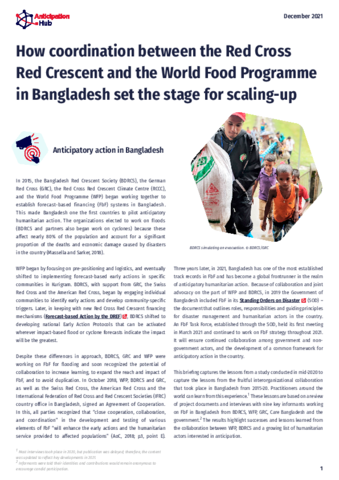
This document seeks to explain how, as a result of complementary initiatives between the Red Cross Red Crescent and WFP and efforts to reduce duplication, more people benefit from anticipatory actions. During the 2020 flood season, for example, WFP reached approximately 145,000 people (WFP, 2021) and BDRCS 16,400 (IFRC, 2020) with anticipatory actions.
The findings described in this briefing lead to several key conclusions and lessons, including the importance to share data, resources, and strategies to capitalize on each organizations’ strengths; the need to coordinate advocacy efforts to speak with one voice; the advantages of facilitating continuous learning, coordination and exchange; and the benefits of allowing for diversity between organizations for maximum impact.
These lessons are based on a review of project documents and interviews with nine key informants working on anticipatory action in Bangladesh from BDRCS, WFP, GRC, Care Bangladesh and the Government. The results highlight successes and lessons learned from the collaboration between WFP, BDRCS and a growing list of humanitarian actors interested in anticipation. Practitioners around the world can learn from this experience.
